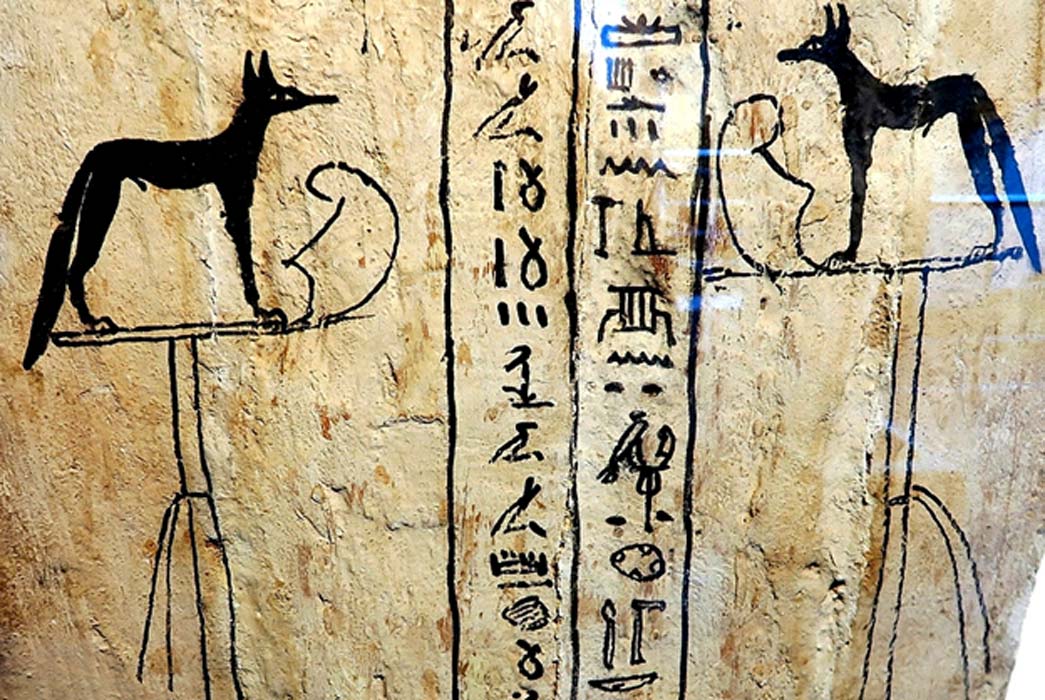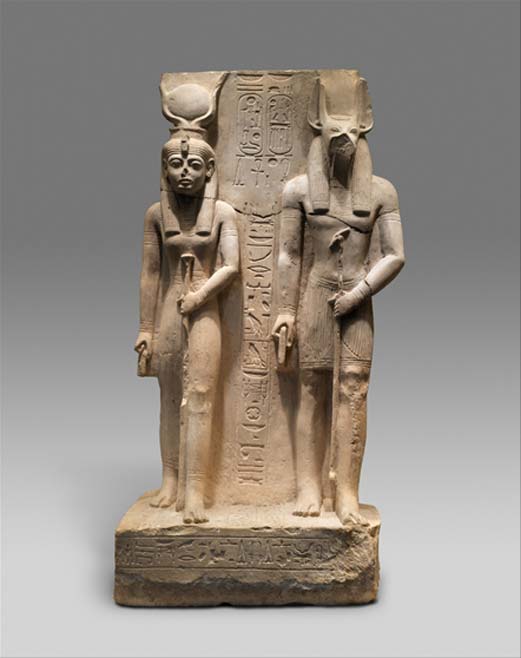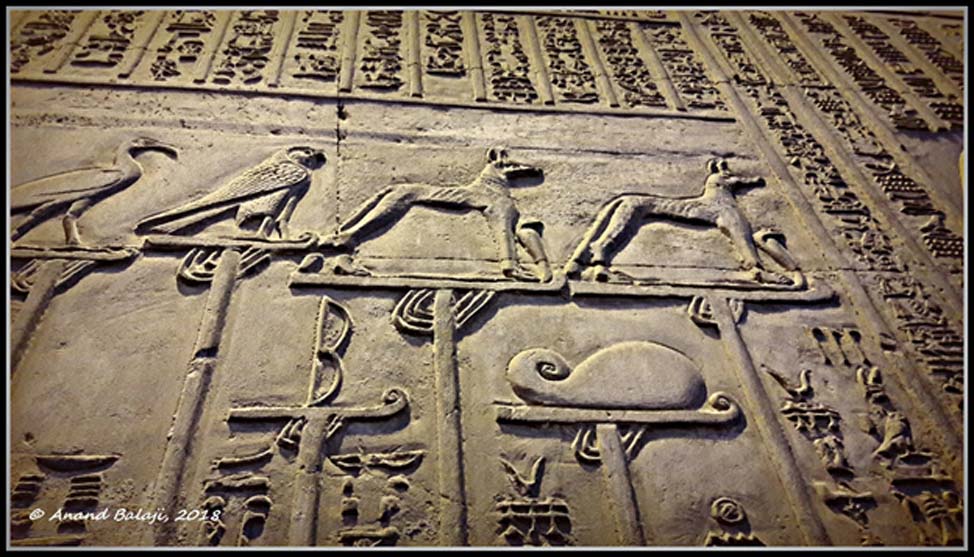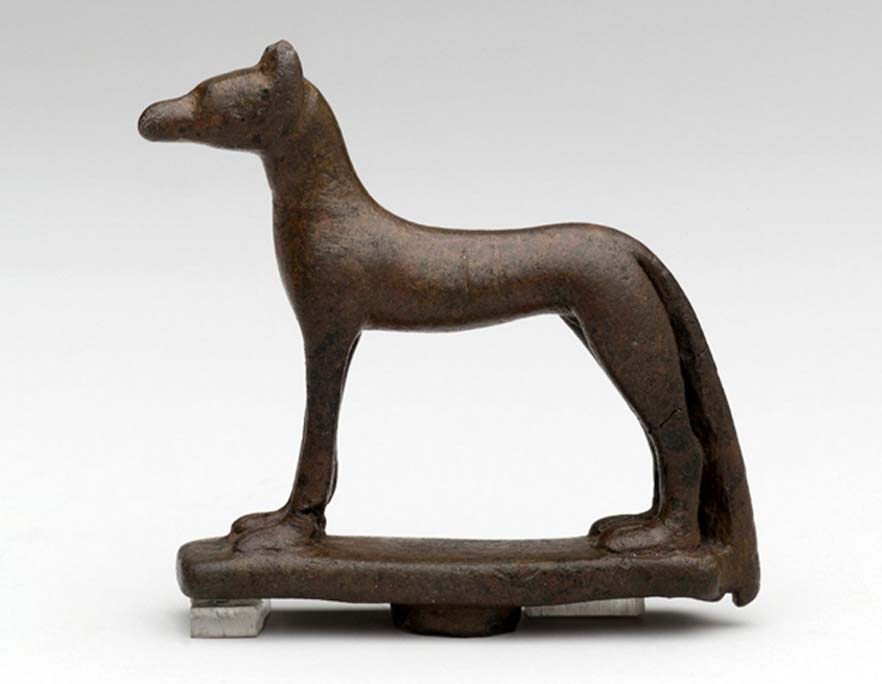
Wepwawet, Lord of Abydos and Champion of Royalty: Origin, Myth and Divinity—Part I
The ancient Egyptians not only worshipped animals they admired but also those that they feared greatly. As a result, their pantheon consisted of innumerable feathered and furry creatures – each a divinity in its own right. Wepwawet, a prominent wolf or jackal-deity dating back to pre-dynastic times held pride of place in the Egyptian religious order. The ubiquitous and regular representations on a range of royal objects bear testimony to his intrinsic association with pharaohs down the millennia. Wepwawet, whose very name means ‘Opener of the Ways’, essayed many roles and was venerated not merely as a funerary god, but also as one who assisted the king when he celebrated the Heb Sed and in warfare too.

The Royal Scribe and Overseer of the Granaries, Siase, dedicated this limestone statue which represents Isis, his patron goddess, and Wepwawet, the local god of Asyut where the statue was made. Its fine but rather provincial style is the work of sculptors who were somewhat removed from the mainstream of the royal workshops. Reign of Ramesses II. Metropolitan Museum of Art, New York.
Origin of Wepwawet
From time immemorial, canid deities dominated the iconographical landscape of various types of monuments throughout ancient Egypt, and were featured conspicuously in tombs, on funerary goods, and offering stelae – among other modes of representation. Wepwawet, his son/sibling - the popular jackal god Anubis - and Khentiamentiu hold pride of place in this regard; but was Wepwawet a wolf, dog, or jackal? At the dawn of Egyptology, early scholars misidentified the species to which Wepwawet truly belonged. How did this confusion arise?

Wepwawet figures stand proud atop royal standards along with other deities in this relief at the Kom Ombo Temple. From the First Dynasty onwards, an image of a rearing cobra (‘uraeus’) was placed in front of the animal.
“The taxonometric distinctions between various canid species are far more complex than those terms would suggest, and many sub-species exist which fall in between designations drawn from common parlance. The ability of species to interbreed also complicates the process of identification,” explains Mary-Ann Pouls Wegner. Stating that the latest zoological research has corroborated the existence of species that fall in between the known canid designations, she states that they reveal “… the presence of a species of small desert wolf in north-eastern Africa that shares attributes of both c. aureas and c. lupus lupaster, which has been tentatively called canis aureus lupaster.” Our terms ‘dog,’ ‘jackal,’ and ‘wolf’ are clearly inadequate for describing the full range of related canid species inhabiting the region of north-Africa, she adds.

Bronze statuette of the funerary deity, Wepwawet. Despite several studies, there is still no clear consensus if Wepwawet represented a jackal, wolf or dog to the ancient Egyptians. Late Period (664–332 BC.) Brooklyn Museum.
The Egyptian jackal (canis aureus lupaster) also known as the African wolf or wolf jackal is currently listed as a subspecies of the golden jackal but molecular and osteological data has established that it is a unique species in its own right. It is native to Egypt, Libya, and Ethiopia, though its post-Pleistocene range once encompassed the Palestine region. Its closest relatives are the Abyssinian wolf, also known as the red wolf and the king jackal, and the Indian wolf. It has been proposed that the dogs of ancient Egypt were likely domesticated subspecies of one or more of these enigmatic species.




